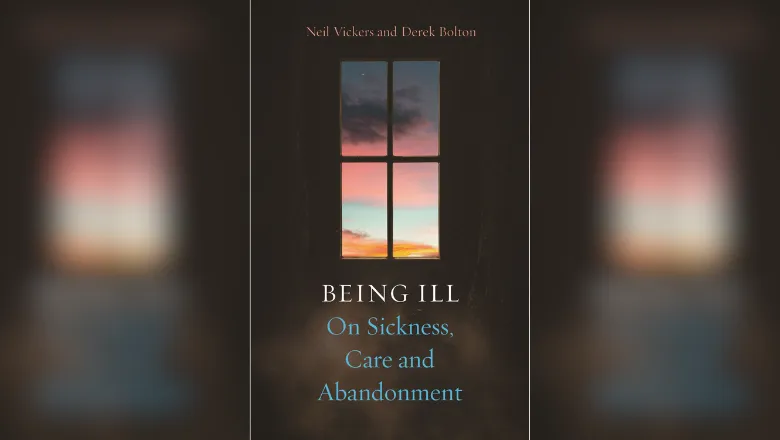A new book by two King's professors suggests that major illness impacts the recognition that humans give each other and proposes an alternative approach to medical humanities research.

Being ill: On Sickness, Care and Abandonment explores why illness transforms our relationship to each other, in mostly negative ways, and what we do about it.
Written by Professor Neil Vickers, Professor of English Literature & the Health Humanities, and Professor Derek Bolton, former Professor of Philosophy and Psychopathology at the Institute of Psychiatry, Psychology & Neuroscience, the book argues that society needs to recognise illness as a group problem, rather than just a medical or personal issue.
This book draws attention to a major social problem in much of Northern Europe and North America today: the largely hidden social isolation of those with major physical illnesses. Very little sustained inquiry has been made into this subject - we are unaware of any previous book-length study of it - and what there is tends to stay at the level of description.
Professor Neil Vickers, Professor of English Literature & the Health Humanities and Co-Director of the Centre for the Humanities and Health
Professors Vickers and Bolton argue that major illness interferes with the forms of recognition humans give each other. Drawing on neuroscience, group psychology, psychoanalysis, infant research, disability theory and microsociology, they put forward an original account of how these forms of recognition operate.
The research aims to model a new approach to medical humanities research, based on the finding that the social determinants of health - the conditions in which people are born, grow, live, work and age - account for the lion's share of inequalities in health outcomes.
Being ill also incorporates the discovery that social disadvantage becomes embedded in the body physiologically more than any effects caused by individual lifestyle and behavioural factors. This differs from other research in medical humanities, where the social determinants of health and the long-term impact of childhood adversity are missing.
If the medical humanities are to blossom, they need to engage not only with a wide range of critical theories but also with scientific discoveries. Very little work in the area engages with the fact that humans have specific motivational systems that shape their behaviour in somewhat predictable ways and, no less significantly, affect their health. We believe our model, or something like it, is essential if illness is to be understood in social terms.
Professor Vickers
Being ill: On Sickness, Care and Abandonment is available now in the UK and will be released in the USA in November.








